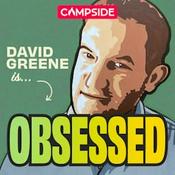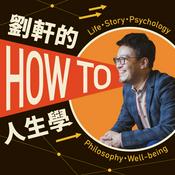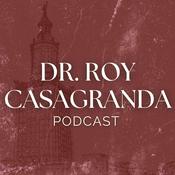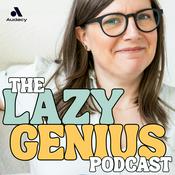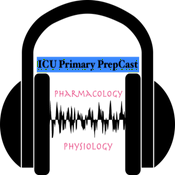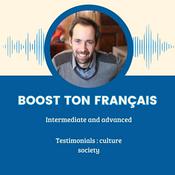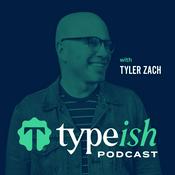336 episodes
- ** Every Tuesday evening, we host an online gathering of friends and newcomers, listening to and discussing our podcast. 8pm ET/5pm PT. Join us! After the episode drops, you’ll find the registration link at the top of our website: realprogressives.org
This week Steve invited Gabriel Rockhill to talk about his new book Who Paid the Pipers of Western Marxism? Vol 1 of The Intellectual World War.
The war on communism is about protecting imperial super-profits, keeping cheap labor and resources flowing from the Global South to the imperial core. It has never been about lofty values and freedom fries. So why does the empire care about books, grants, and academic careers?
Gabriel’s investigation begins with a potent symbol: the legacy of Che Guevara. We know the CIA hunted and executed him. Less known is their parallel mission to assassinate the legacy of his thoughts. By seizing and editing his Bolivian diaries, US intelligence and its media assets would control the narrative of his struggle. It’s a microcosm of a vast, systemic project. It reveals that empires understand a fundamental truth: the pen can be mightier than the sword. That might sound trite but think about it: to control populations and maintain global dominance, you must control the realm of thought, the very imagination of what is possible.
The true target of this intellectual war has never been abstract Marxist theory. It is actually existing socialism: the tangible, state-building projects that succeeded in breaking the chains of imperialism. From the Soviet Union and China to Cuba, Vietnam, and beyond, these movements achieved the unthinkable: they halted the imperial value flow. They stopped the hemorrhage of natural resources and cheap labor from the Global South to the capitalist core, claiming their right to self-determination and independent development. This was the existential threat: a model proving that escape from the imperialist world-system was achievable. The panic in the halls of power was not over esoteric debates about Hegelian dialectics, but over the loss of super-profits and the empowering example of successful liberation.
Gabriel and Steve discuss why dialectical and historical materialism is more than just a lofty sounding term. It actually matters. It’s like the anti-virus software for propaganda. Instead of being knocked over every time a new headline drops, we have a framework for seeing patterns. Coups, destabilization, narrative management, the whole traveling circus? They all make sense. And they’re all connected. (In fact, you can’t listen to this episode without hearing the dialectical relationship between material control and the control of ideas.)
Using the Marxist lens, Gabriel analyzes the socioeconomic base of the “theory industry” and a certain brand of Western or academic Marxism that turns class struggle into a grad-seminar aesthetic and cultural war hobby, safely disconnected from organizing, anti-imperialism, and actual movements. He argues the capitalist system naturally fosters and funds ideas that secure its survival, making knowledge production a commodity-driven system focused on exchange value (career advancement, book sales) rather than use value for liberation.
Gabriel isn’t just naming names for sport. (And besides, in the US we already have a long and colorful tradition of naming names, so let’s not be clutching our pearls.) He’s pointing at a system that manufactures respectable “leftist” ideas that don’t threaten empire. As the imperial core becomes more openly brulat at home, we need to reconnect with the international, anti-imperialist thread of revolutionary Marxism if we’re serious about changing anything.
Gabriel Rockhill is a philosopher, cultural critic, and activist. He is the Founding Director of the Critical... - Funding white supremacy is a core, not incidental, function of the modern capitalist state in the U.S. It is also the title of economist Robert B. Williams’ 2025 book, Funding White Supremacy: Federal Wealth Policies and the Modern Racial Wealth Gap.
Bob and Steve share the fundamental position that capitalism doesn’t just produce inequality by accident, it builds durable ladders for some and trapdoors for others. Wealth, not income, is the key instrument because it is power that reproduces itself across generations.
Bob lays out the major policy mechanism of stealth wealth-building: how the federal government subsidizes asset accumulation through the tax code, especially via “tax expenditures” (deductions, exclusions, preferential treatment) that provide vast benefits to the wealthy.
From an MMT perspective, the conversation underlines a crucial point: the state’s problem is not “finding the money,” it’s choosing who gets the public subsidy. A system that claims scarcity around public goods reliably mobilizes massive policy support for private asset appreciation and wealth compounding. In other words, benefits reward ownership and existing assets, not the people struggling to acquire them.
Bob situates this historically, tracing the origins of the modern income and estate tax era to the early 20th century and argues that any progressive policy history coexisted with, and was intertwined with, overt white supremacist politics.
Robert B. Williams is the Stedman Professor of Economics, Guilford College. Bob has taught economics and political economy for over 40 years. He has written three books, including Funding White Supremacy: Federal Wealth Policies and the Modern Racial Wealth Gap (Cambridge University Press, 2025). - We’ve made the case before, but it bears repeating: MMT is a politically neutral, descriptive lens explaining the operational realities of a sovereign fiat currency system where the availability of real resources, not money, are the constraint. And Marxism is an analytical framework for understanding class relations and production. The two are not inherently opposed. It’s a mistake to dismiss MMT as capitalist apologetics.
Steve’s guest is Dr. Anthony Anastasi, an economist teaching at the Sino-British College, University of Shanghai for Science and Technology. They talk about Anthony’s paper: Marxism and MMT: How Modern Monetary Theory Can Enrich the Debate Amongst Marxists.
They dismantle the all-too-common Marxist critiques of MMT, which claim that the state can’t control money’s value, and that MMT lacks a theory of value. (However, the ubiquitous “taxpayer money” framing that feeds austerity myths, is not limited to Marxists.) The discussion reframes the state's monetary capacity as a tool for class struggle rather than a capitalist backstop.
They look at the federal job guarantee with reference to Rosa Luxemburg’s concept of non-reformist reform, ie, a reform that can weaken capitalist logic and build working-class consciousness and power.
Anthony also brings an on-the-ground perspective, sharing observations from China’s political economy, including local-vs-central financing, RMB-denominated debt, capital controls, and emerging debates that resemble MMT arguments even when not labeled as such.
Dr. Anthony William Donald Anastasi is an economist and lecturer specializing in development economics and international political economy. He teaches at the Sino-British College, University of Shanghai for Science and Technology, and holds a Ph.D. from East China Normal University. His research examines how state–business relations, industrial policy, monetary sovereignty, and income distribution shape economic growth, trade patterns, and political power, with a particular focus on China and East Asia. Alongside publishing in SSCI-ranked journals, he regularly writes for the popular press on the Chinese and U.S. economies and global trade.
@_AWDA_ on X - Steve opens in a subdued mood brought on by the dizzying speed of ‘current events.’ For this episode he’s stepping back and looking at Venezuela. News reports are working hard to create confusion. On social media US citizens claim that kidnapping a sitting president is justified if you don’t like him. Or if he’s socialist.
To understand a situation, it must be considered historically, materially, and as a connected process. With that in mind, Ricardo Vaz of Venezuelanalysis, joins Steve to talk about what the Bolivarian Revolution actually was – on the ground – beyond the familiar US media caricatures. Ricardo walks through key turning points in the Chávez era and the social gains that reshaped everyday life. But there’s a bigger question that haunts every revolutionary project. How do you build new forms of democratic power while the old state machinery, domestic elites, and hostile external forces push back?
(Does this sound familiar? It will if you took part in RP Book Club’s study of State and Revolution)
From there, the conversation follows the oil thread. It’s not a single-cause explanation, but it’s where sovereignty, development, and imperial pressure collide. Steve and Ricardo unpack how the hydrocarbons industry evolved, what “nationalization” really meant in practice, and why the fight over Venezuela’s resources can’t be separated from US strategy in the hemisphere.
They then look into the Maduro years, sanctions, economic siege, and the constant tug-of-war inside Venezuela between survival policies and revolutionary horizons. This includes a clear-eyed look at opposition figures and the narratives that dominate US talking points. The episode closes with a grounded discussion of why Venezuela matters as a 21st-century political experiment, and what meaningful solidarity looks like when the headlines are designed to mislead and misdirect.
Ricardo Vaz grew up in Mozambique with strong political leanings and a clear anti-imperialist outlook, which led him early on to closely follow the Bolivarian Revolution and Chavismo in Venezuela. After living in various countries and continents, he moved to Venezuela in early 2019. Although trained in theoretical physics, he gradually shifted into journalism and political analysis, joining the Venezuela Analysis staff as a writer and editor in 2018. His main interests include sanctions, popular power organizations, and corporate media coverage of Venezuela. He is also a member of grassroots media collectives including Tatuy TV and Utopix.
venezuelanalysis.com
@venanalysis on X Ep 362 - Debunking the Institutional Theory of Economic Development with Erald Kolasi
10/1/2026 | 1h 23 mins.Steve welcomes back Erald Kolasi, physicist-economist, author, and friend of the podcast. Erald is here to do a demolition job on “institutional” development fables like Acemoglu & Robinson’s Why Nations Fail. He argues that by treating good institutions as the master key (inclusive vs. extractive) they smuggle in a liberal moral scoreboard while dodging the real motors of history: power, class struggle, imperial systems, and material constraints like energy, trade dependence, war, and ecological shocks.
To “steelman” Acemoglu and Robinson’s position, Erald uses their favorite showcase case – North vs. South Korea. He lays out their comparison of the “tyrannical dictatorship” vs the “open” society and presents their explanation for these differences.
Erald then flips the script: the DPRK outperformed for decades, then crashed not because its “institutions got worse,” but because the USSR collapsed. Cheap, subsidized energy disappeared, wrecking agriculture and triggering famine.
The pattern repeats across history. Using examples like China and Venezuela, the episode explores how wars, sanctions, resource access, and global power structures shape economic outcomes far more than abstract institutional rules. Development is a struggle rooted in material conditions and geopolitical realities, not a neutral competition between better or worse policy designs.
Erald Kolasi is a writer and researcher focusing on the nexus between energy, technology, economics, complex systems, and ecological dynamics. His book, The Physics of Capitalism, came out from Monthly Review Press in February 2025. He received his PhD in Physics from George Mason University in 2016. You can find out more about Erald and his work at his website, www.eraldkolasi.com.
Subscribe to his Substack: https://substack.com/@technodynamics
More Education podcasts
Trending Education podcasts
About Macro N Cheese
A podcast that critically examines the working-class struggle through the lens of MMT or Modern Monetary Theory. Host Steve Grumbine, founder of Real Progressives, provides incisive political commentary and showcases grassroots activism. Join us for a robust, unfiltered exploration of economic issues that impact the working class, as we challenge the status quo and prioritize collective well-being over profit. This is comfort food for the mind, fueling our fight for justice and equity!
Podcast websiteListen to Macro N Cheese, SOLVED with Mark Manson and many other podcasts from around the world with the radio.net app

Get the free radio.net app
- Stations and podcasts to bookmark
- Stream via Wi-Fi or Bluetooth
- Supports Carplay & Android Auto
- Many other app features
Get the free radio.net app
- Stations and podcasts to bookmark
- Stream via Wi-Fi or Bluetooth
- Supports Carplay & Android Auto
- Many other app features


Macro N Cheese
Scan code,
download the app,
start listening.
download the app,
start listening.






